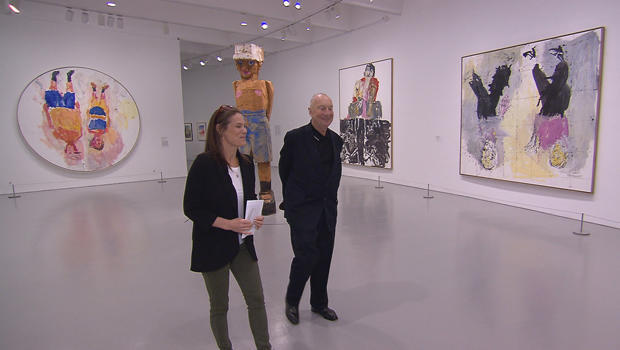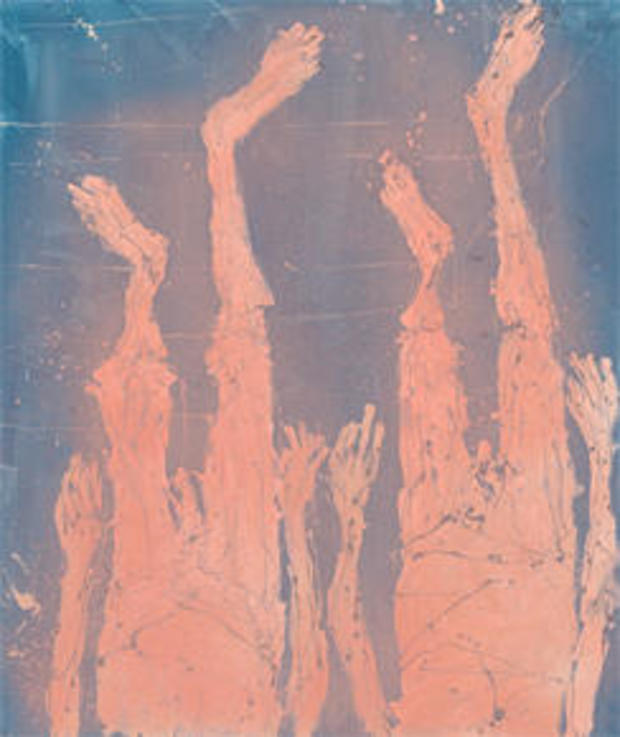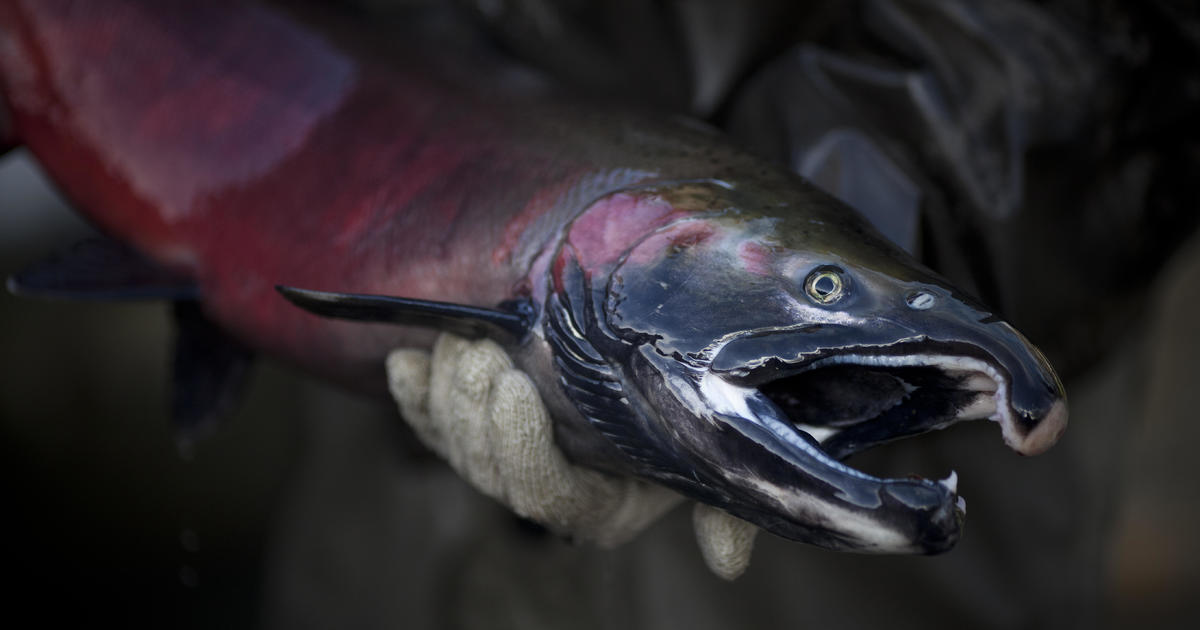How Georg Baselitz turned the art world upside-down
Now on display in Washington: work of an artist with a distinctly different slant on things, as Serena Altschul shows us:
He paints upside down (meaning the art, not the artist). It's the long-time trademark of German-born painter Georg Baselitz.
Altschul met up with the artist, accompanied by his translator, at a retrospective of his work at the Hirshhorn Museum in Washington, D.C.
Altschul asked the artist, "Why turn them upside down? What does it do for the viewer?"
"There's some sort of irritation, the view of them, and that's intentional," Baselitz replied. "When you're irritated, you pay closer attention."
While some see genius in his work, others see a gimmick. Are these inverted images a trick to sell art, or the result of a long search for identity?
Any way you look at it, at 80 years old, Baselitz is one of today's top-selling living artists.
Born Hans-Georg Kern in 1938, he grew up in the ruins of post-war Germany. He adopted the surname Baselitz as a tribute to his hometown, which later became part of East Germany.
"His father was a member of the Nazi party," said Stephane Aquin, chief curator of the Hirshhorn Museum. "He saw his father go to war and come back with one eye less. At the age of eight he was not the child of an important man anymore; he was the son of a humiliated man, and the landscape around him had been devastated."
Baselitz said, "When you want to become an artist, you kind of need a guide star. But there were no heroes. The heroes had died, [and] you need heroes."
As a young artist in search of inspiration, he enrolled in art school.
Aquin said, "He witnesses first-hand the authoritarianism of the East Berlin government. He sees these exhibitions of social realists' art, Russian art, promoted throughout Germany in the Eastern Bloc by Stalin."
"And he feels it's fraudulent? It's just fake and he can't stomach it?" Altschul asked.
"He cannot."
His defiance got him expelled, so he moved to West Berlin where he continued his studies.
There he was exposed to American-sponsored art exhibits, which included works by Jackson Pollock and Willem de Kooning.
"Suddenly, he realized that this is also propaganda, just a different type," Aquin said.
So, Baselitz forged his own path by painting graphic images of dismembered and mangled bodies. "What he saw also as a collective trauma of a country or a nation that was not facing the horror that it had gone through and that it had generated," Aquin said.
In 1963, during his first major exhibition, two of his paintings were confiscated and labeled obscene. Speaking of himself, Baselitz said, "You don't start being a really good boy. I was stupid. I was uneducated, but I was a rebel."
At the age of 31 he found himself in an artistic crisis: "I wanted to see whether something remained to be done by me in Europe, and particularly in Germany."
"You had some kind of a lightbulb moment where you said, 'A-ha!, I know what I'm going to do?'" Altschul asked.
"Yes, this was a lightbulb moment."
And that's when he decided to turn his world, and his work, upside-down.
By the 1980s his art began to sell.
Altschul said, "He turns it on its head and he said, 'I must be on to something here.'"
"And 'I will never again trust any kind of authority or system,'" Aquin said.
Aquin said that Baselitz was profoundly marked by rejection, being German in a post-Nazi world, and the same of his father: "And that is, I think, a sign of his great intellectual honesty. He has struggled but accepted the fact that he was German. He could never be anything but German."
The rebel outsider has since become an accomplished insider, his work respected the world over, but perhaps as important he's now a national treasure.
For more info:
- Baselitz: Six Decades, at the Smithsonian's Hirshhorn Museum and Sculpture Garden, Washington, D.C. (through Sept. 16)
- Georg Baselitz at Artnet
- Georg Baselitz at the Museum of Modern Art, New York City
- Georg Baseltiz at the Tate, London
Story produced by Amy Wall.





